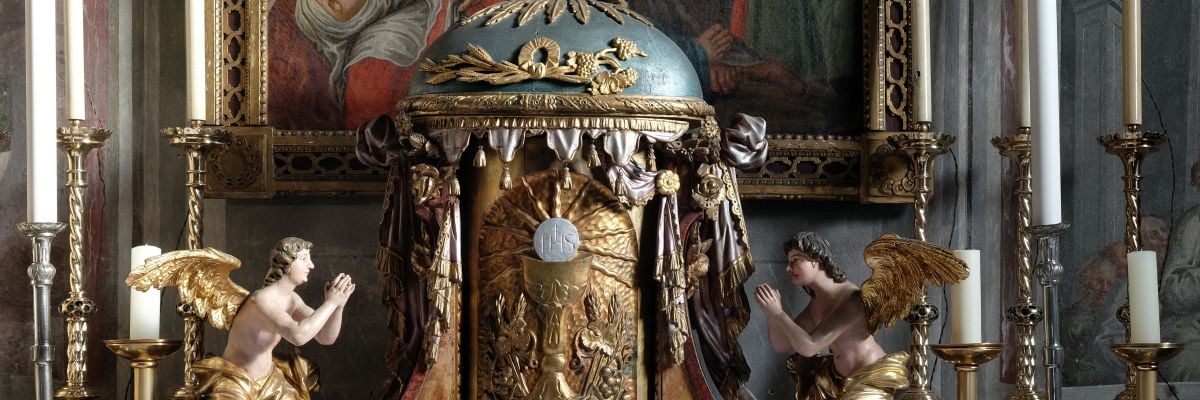
Question:
Answer:
The passage you cite is from St. Paul’s presentation in the Athenian Areopagus: “The God who made the world and everything in it, being Lord of heaven and earth, does not live in shrines made by man” (Acts 17:24).
St. Paul’s words need to be read in context. God’s ultimate dwelling place is in heaven. And on earth, given his omnipresence, he is not limited to human places of worship. That is Paul’s meaning. And for those who use this passage to argue against Catholic tabernacles, in which our Eucharistic Lord dwells, they would have to similarly argue—contrary to Scripture and their own Christian beliefs otherwise—that Jesus is not present when they gather together inside their Protestant churches: “For where two or three are gathered in my name, there am I in the midst of them” (Matthew 18:20).
Taking St. Paul in a strictly literal way leads to other contractions. For example, God is omnipresent, but he manifested his presence most intimately in the holy of holies of the ancient wilderness tabernacle and subsequently the Temple (Ex. 40:34-38; Leviticus 16; 1 Kings 8:1-13). Similarly, today Jesus remains with us always as he promised he would (Matt. 28:20), and he does in the tabernacles of Catholic churches throughout the world, which are the New Covenant analogues to the ancient Temple.



